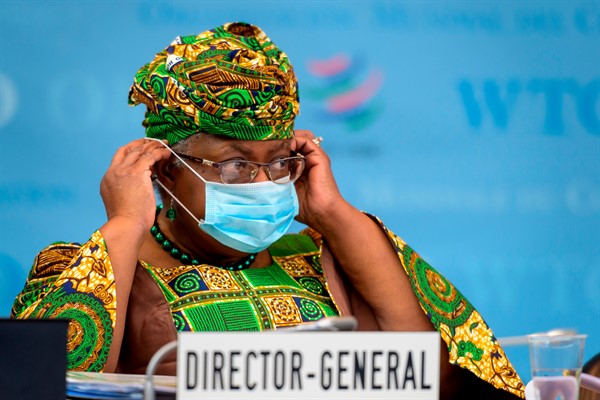The World Trade Organization made history last month when its members chose Ngozi Okonjo-Iweala as director-general, the first woman and first African to hold that position. A former Nigerian finance minister and senior World Bank official, Okonjo-Iweala enjoyed near-unanimous support, but her candidacy had been stalled by opposition from the Trump administration. One of President Joe Biden’s early actions after taking office in January, however, was to reverse Donald Trump’s veto and join the consensus behind her appointment. That, along with Biden’s overall preference for multilateral cooperation over unilateralism, opens space for the WTO to get out of the cul de sac that Trump had pushed it into.
For her part, Okonjo-Iweala has signaled a willingness to break the mold. “It cannot be business as usual,” she declared on her first day in office last week. “We have to change our approach from debate and rounds of questions to delivering results.” But big challenges remain for the WTO, and the road to renewed relevance will not be smooth.
The organization’s problems have been building for years. For starters, many analysts have pointed out that WTO rules are ill-equipped to address China’s state-led industrial policies, which helped it to become the world’s top exporter of goods while maintaining a highly uneven playing field for foreign firms in its domestic markets. Yet negotiations to update international trade rules have been paralyzed by sharp disagreements between industrialized and developing countries over how much the latter should open their markets.

